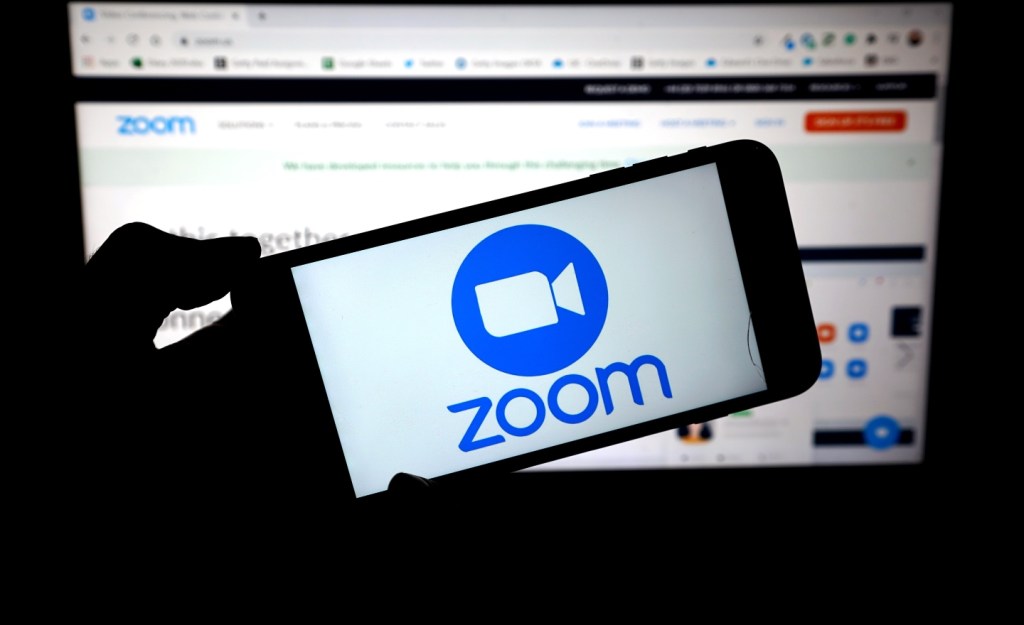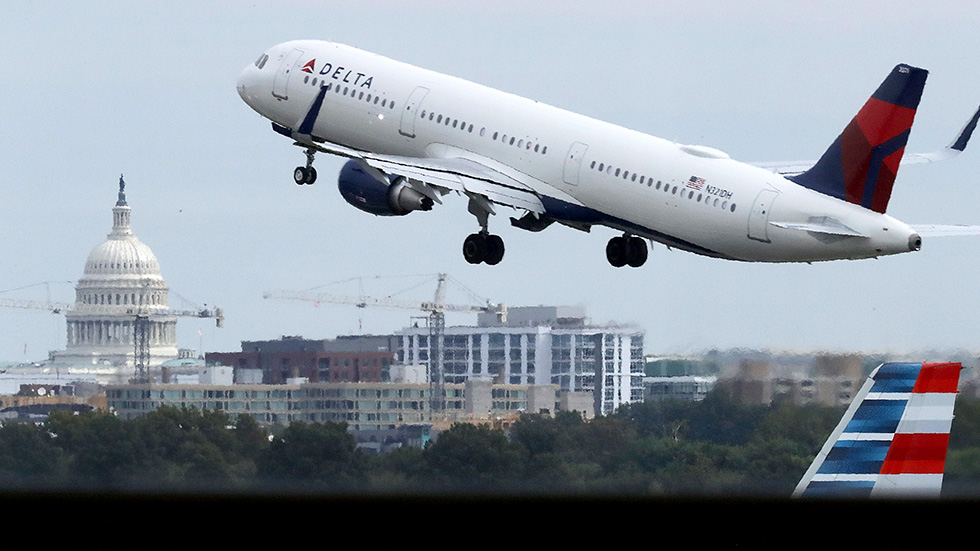Hillicon Valley — Presented by Connected Commerce Council — Biden sets cyber standards
Today is Wednesday. Welcome to Hillicon Valley, detailing all you need to know about tech and cyber news from Capitol Hill to Silicon Valley. Subscribe here: digital-staging.thehill.com/newsletter-signup.
Follow The Hill’s tech team, Chris Mills Rodrigo (@millsrodrigo) and Rebecca Klar (@rebeccaklar_), for more coverage.
President Biden started off a busy Wednesday by signing a memo setting new cyber standards for sensitive national security systems, actualizing an executive order signed last May.
Today we’ll also look at the tussle over 5G and airplanes, which somehow got more confused as multiple airlines canceled flights despite a delay in deployment of the new system. Lina Khan also gave her first TV interview as chair of the FTC.
Let’s jump into the news.
Biden boosts security on sensitive systems

President Biden signed a national security memorandum on Wednesday that sets new cybersecurity requirements for sensitive national security systems run by the Pentagon, intelligence community and other federal agencies.
The memorandum lays out how Biden’s May executive order on federal government cybersecurity applies to national security systems controlled by government agencies, stating that national security systems should at minimum have the same security protection as federal civilian networks under that order.
The memorandum requires these agencies to prioritize resources to adopt and use cloud technology. It also directs agencies to implement multifactor authentication and encryption for most national security systems within 180 days of its signing.
It also requires affected agencies to report suspected breaches of national security systems to the National Security Agency (NSA) and requires the NSA in coordination with DNI and CIA to establish plans for reporting such suspected compromises.
The memo empowers NSA to issue binding directives to agencies to take action to mitigate a potential cyber threat or vulnerability.
5G rollout delays flights

Multiple airlines canceled or delayed flights to the United States ahead of an anticipated 5G rollout scheduled for Wednesday even though wireless carriers agreed on Tuesday to pause the deployment around some airports.
Airlines including Emirates canceled flights with Boeing 777s due to the Federal Aviation Administration’s warning that 5G interference could affect height cockpit readings, Reuters reported.
Emirates, which is the world’s largest operator of the Boeing 777, announced that its cancellations were due to “operational concerns associated with the planned deployment of 5G mobile network services in the U.S. at certain airports,” The Associated Press noted.
“We are working closely with aircraft manufacturers and the relevant authorities to alleviate operational concerns, and we hope to resume our U.S. services as soon as possible,” the airline added.
Both AT&T and Verizon announced on Tuesday that they would temporarily halt their plans to roll out 5G near major airports in the U.S.
But airline industry insiders told Reuters that the wireless providers’ decision came too late to allow them to adjust flights on Wednesday.
A MESSAGE FROM CONNECTED COMMERCE COUNCIL
Congress is considering sweeping antitrust legislation that could hurt the digital economy – and put small businesses at risk. Learn more at connectedcouncil.org
MORE FINGER POINTING
The president of Emirates airline on Wednesday said the rollout of 5G technology has been “utterly irresponsible,” as some international airlines scramble to cancel flights to the U.S. amid concerns that the new technology may cause travel disruptions.
When asked during an interview with CNN what he makes of the 5G rollout in the U.S., Tim Clark said it is “one of the most delinquent, utterly irresponsible issue, subjects, call it what you like, I’ve seen in my aviation career.”
“Somebody should have told them a long time ago that it would compromise safety of operation of aircraft in metropolitan areas with catastrophic consequences if this was allowed to continue,” said the 50-year industry veteran. “I think that message got through at a very late stage.”
KHAN LIVE
Federal Trade Commission chair Lina Khan promised her agency won’t back down from investigations into Big Tech companies during her first TV interview in the role.
“These are enormously well-resourced companies, they are not shy about deploying those resources,” she said in an appearance on CNBC Wednesday.
“I think in these moments, it’s important to kind of ensure we’re really showing these companies but also showing the country that enforcers are not going to back down because of these companies flexing some muscle or kind of trying to intimidate us,” Khan added.
The agency chief touched on several parts of her antitrust agenda over the course of the hour-long interview with CNBC anchor Andrew Ross Sorkin and New York Times podcast host Kara Swisher.
Khan discussed Tuesday’s announcement that the FTC and Justice Department’s antitrust division are reviewing guidelines for mergers in attempt to block more deals that could harm competition.
Existing frameworks for evaluating both horizontal and vertical mergers do not account for changes to the economy largely driven by new technologies, she argued.
CEO who fired employees over Zoom returning

Better.com CEO Vishal Garg, who fired 900 of his employees over a Zoom call meeting last month, is resuming his “full-time duties” with the company.
In a letter to his employees obtained by CNN, Garg said he used a leave of absence to “reflect on his leadership, reconnect with the values that make Better great and work closely with an executive coach.”
“I understand how hard these past few weeks have been. I am deeply sorry for the angst, distraction and embarrassment my actions have caused,” Garg wrote in the letter. “I’ve spent a lot of time thinking about where we are as a company and the type of leadership Better needs … and the leader I want to be.”
Garg also wrote that an outside law firm reviewed his company’s workplace culture and has implemented changes, which include adding more managers and a chief human resources officer, according to CNN.
A MESSAGE FROM CONNECTED COMMERCE COUNCIL
Congress is considering sweeping antitrust legislation that could hurt the digital economy – and put small businesses at risk. Learn more at connectedcouncil.org
BITS AND PIECES
An op-ed to chew on: An interview in the metaverse
Lighter click: Bateman posting
Notable links from around the web:
‘There’s no retirement in this job,’ gig workers say (MarketWatch / Levi Sumagaysay)
McCarthy’s love-hate relationship with Silicon Valley (Politico / Emily Birnbaum and Hailey Fuchs)
HelloFresh Workers Voted Against Unionizing Despite High Injury Rates, Low Wages, And A COVID Outbreak (BuzzFeed News / Caroline O’Donovan)
One last thing: FAA clears flights

The Federal Aviation Administration (FAA) on Wednesday said that close to two-thirds of U.S. commercial fleets have been cleared “to perform low-visibility landings at airports” with the newly deployed 5G wireless service.
“The new safety buffer announced Tuesday around airports in the 5G deployment further expanded the number of airports available to planes with previously cleared altimeters to perform low-visibility landings. The FAA early Wednesday cleared another three altimeters,” the agency said in a statement.
Among the aircraft models that have been cleared by the FAA include certain Airbus A300, A310, A319, A320, A330, A340, A350 and A380 models and Boeing 717, 737, 747, 757, 767, 777, MD-10/-11 models, the agency noted.
The announcement by the FAA comes as Verizon and AT&T on Wednesday rolled out their 5G service while agreeing to delay its deployment near certain airports.
That’s it for today, thanks for reading. Check out The Hill’s technology and cybersecurity pages for the latest news and coverage. We’ll see you Thursday.{mosads}
Copyright 2024 Nexstar Media Inc. All rights reserved. This material may not be published, broadcast, rewritten, or redistributed..








